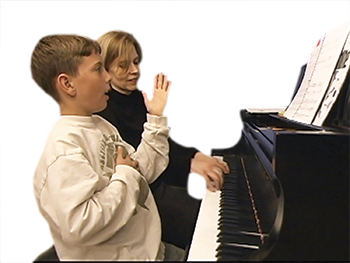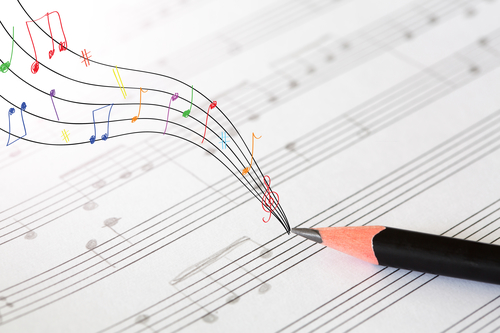Pattern Recognition Why are five-finger positions a necessary part of piano pedagogy? Because our hands have five fingers. So the relevance of five-finger patterns applies at virtually any level of piano playing. Major and minor five-finger patterns are taught in Level 2A of Piano Adventures®—after the basics of reading are…
Read more →
Blog


Perhaps the favorite application of music theory in piano instruction is the teaching of I, IV and V7 chords in that familiar cluster surrounding the root-position I chord. This aspect of piano pedagogy is a guiding concept for Level 2B of Piano Adventures® and the corresponding ChordTime® Piano series. This…
Read more →

We’ve all seen an occasional precocious student move up the levels with impressive speed. We regard this speedy progress through the method as a reliable predictor of future success… and we are thus seduced. The high-numbered level makes the teacher look good and the parent beam with pride. So we…
Read more →

This is what the student has been waiting for—a chance to play fast. “Now I can really show off!” Then we tell the student, “The first lesson in playing fast is … slow practice.” We’ve just taken the wind out of their sails. Well … almost. There are secrets to…
Read more →

At Level 3B, we appealed to the student’s interest in fast playing. At Level 4 the student learns lyric playing—the ability to project and beautifully shape a melody. We positioned lyric playing after fast playing because it requires more mature expression. We like to discuss the excitement of speed and…
Read more →

As we read and create music, we weave through a I-IV-V tapestry of primary chords. At Piano Adventures® Level 5, we ensure that the student can see and feel this structural tapestry for each tonal piece. Scales “Why learn scales?” students ask. Our answer? A scale reduces 88 keys to…
Read more →

An excerpt by Wynn-Anne Rossi There are too many lofty myths regarding original composition. It is true that Mozart wrote music (even a small concerto) before some of us could read. But you don’t have to be a Mozart to compose music. When we start a 5-year- old with piano lessons,…
Read more →

Nancy and Randall Faber, pioneering authors and experts in the field of piano pedagogy, are pleased to announce the release of a new mobile app for Apple® iPhone and iPad. The app provides interactive accompaniments and play-along tracks for Piano Adventures® lesson, technique and performance books – bringing an orchestra,…
Read more →

Have you been uneasily watching students get their dopamine fix from beeps and tweets of social media? Ah, valuable time that could be for piano practice! Yes, we’re quite convinced of this, yet we’re lured by an anxious feeling that we’re missing the latest technology for teaching. Don’t be dismayed…and…
Read more →

